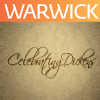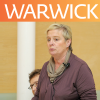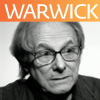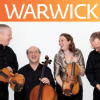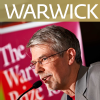-
Continuing the Knowledge Centre's podcast series on global commodities, academics talk to Professor Giorgio Riello of the University of Warwick’s Global History and Culture Centre about their favourite objects.
-
Dr Seán Allan from the department of German Studies along with Professor Ricarda Schmidt & Dr Steven Howe, University of Exeter present this podcast series on Heinrich von Kleist. Kleist (1777-1811) is one of the most important German writers of the early nineteenth century, and his works have had a profound influence on subsequent writers both in Germany and beyond. A three-year project – funded by the Arts and Humanties Research Council – explores one aspect of his work (education) that has been almost totally ignored, and links it to another (the representation of violence) in a way that will shed new light on constructive and destructive functions of violence in his work.
-
During the bicentenarial year of the birth of Charles Dickens (7th February 1812), the University of Warwick is celebrating the life and works of one of the greatest authors to ever put pen to paper. Experts from the University and beyond explore the genius of Dickens across different aspects of his experiences, knowledge, philanthropy, character-rich novels and the Victorian era, in which he lived. Video and audio interviews with leading academics plus readings of extracts of his work pay homage to the way the great man has stood the test of time and continue to have a huge influence on today’s authors, filmmakers, artists and academics.
-
The Literature, Travel, Translation symposium was organised to celebrate the important contribution that Warwick scholar Prof Susan Bassnett has made to the field of translation studies. At the event visiting lecturers Prof Harish Trivedi and Prof Vita Fortunati gave their own perspectives on translation studies, speaking on the subject of translation in the novels of Kipling, Forster and Rushdie, and the seduction of 'elsewhere' in travel and utopian literature.
-
Ken Loach talks 'Route Irish', YouTube and the privatisation of war with Professor Charlotte Brunsdon.
-
A workshop in literature, philosophy, music and the arts followed by a concert by the Coull Quartet.
-
The Prize for Writing can be won by authors from any country, regardless of the type of writing that they produce. A panel of invited judges consider many works to decide which most deserves the Warwick Prize for Writing. The winner of the Warwick Prize for Writing 2011 was announced on Tuesday 22 March at an event at the Royal Festival Hall, London. Peter Forbes was announced as the winner by the Chair of the Judging Panel, Michael Rosen, for his work Dazzled and Deceived: Mimicry and Camouflage.
-
International bestselling author Francisco Goldman whose work 'The Art of Political Murder' was short-listed for the 2009 Warwick Prize for Writing visited the University Warwick to give a talk about the success of this book, his career as an investigative writer and his new novel 'Say Her Name'. He also made time to talk to students within the Humanities Research Centre and the Warwick Writing Programme.
-
A collection of films made by the University of Warwick in conjunction with the Shakespeare Birthplace Trust about the life and times of William Shakespeare. With unique access to the Trust's library and archives, the houses associated with Shakespeare and exhibitions created by their experts this series of videos have given academics at Warwick the opportunity to explore some of the much debated issues surrounding arguably the world's greatest poet and author of plays.
-
David Morley, Director of the Warwick Writing Programme, leads you through a series of poetry podcast challenges, exploring the wonderful word-world of poetry, sharing some of his own poems and challenging you to find the poet within you.
-
A series of podcasts from the University of Warwick about the bard William Shakespeare and his works.
-
Tom Cornford is a freelance theatre director and Artist in-Residence (2008/9) at The CAPITAL Centre. He is doing a long project on Hamlet, investigating the play through rehearsal and performance and by partially re-creating the lost or never-made Hamlets of Stanislavsky and Edward Gordon Craig, Meyerhold, Michael Chekhov and Andrey Tarkovsky. The project will culminate in a performance/discussion and an exhibition at The CAPITAL Centre.
-
An introduction to literature between the early twentieth century and the 1960s through key texts of English, American, continental European and other literatures and divided into sections on poetry in the modern world, fiction in the modern world, literature about modern war, and writing of the 1950s and 1960s, and postcolonial writing.
-
This was a cross-disciplinary enquiry into the career and the legacy of Paul Robeson culminating in an exhibition accompanying the recent RSC Production of Othello. Paul Robeson (1898-1976) was a stage and screen actor, a musician, an athlete, a scholar, a lawyer and a tireless campaigner for the rights of oppressed people of all races - an extraordinary icon and an enduring role-model. Blacklisted by the House Un-American Activities Committee, attacked onstage by racist mobs, he was unable to perform in the USA in the 1950s and denied the passport that would let him work abroad. This pioneer of the Civil Rights movement finally won back his passport in the courts and ended his acting career gloriously at Stratford in 1959, playing Othello.
-
Prof. Jacqueline Labbe talks about the life and works of Charlotte Turner Smith.
-
In the year of the 400th anniversary of their publication Professors Stanley Wells and Jonathan Bate talk to Paul Edmondson about the content and context of Shakespeare's collection of sonnets.
-
Under Labour, the arts were charged with challenging social exclusion, celebrating diversity and reasserting Britishness. But is there a contradiction between diversity and national identity? Should theatre foster cohesion or challenge it? If multiculturalism is dead, should theatre be promoting it? Is the theatre’s role to encourage tolerance or provoke outrage? This two-day conference at Warwick Arts Centre, debated theatre’s relationship with the community, with identity politics, with the emergent nationalisms of Scotland and Wales, multiculturalism and our national history.
-
Under Labour, the arts were charged with challenging social exclusion, celebrating diversity and reasserting Britishness. But is there a contradiction between diversity and national identity? Should theatre foster cohesion or challenge it? If multiculturalism is dead, should theatre be promoting it? Is the theatre’s role to encourage tolerance or provoke outrage? This two-day conference at Warwick Arts Centre, debated theatre’s relationship with the community, with identity politics, with the emergent nationalisms of Scotland and Wales, multiculturalism and our national history.
-
Under Labour, the arts were charged with challenging social exclusion, celebrating diversity and reasserting Britishness. But is there a contradiction between diversity and national identity? Should theatre foster cohesion or challenge it? If multiculturalism is dead, should theatre be promoting it? Is the theatre’s role to encourage tolerance or provoke outrage? This two-day conference at Warwick Arts Centre, debated theatre’s relationship with the community, with identity politics, with the emergent nationalisms of Scotland and Wales, multiculturalism and our national history.
-
Under Labour, the arts were charged with challenging social exclusion, celebrating diversity and reasserting Britishness. But is there a contradiction between diversity and national identity? Should theatre foster cohesion or challenge it? If multiculturalism is dead, should theatre be promoting it? Is the theatre’s role to encourage tolerance or provoke outrage? This two-day conference at Warwick Arts Centre, debated theatre’s relationship with the community, with identity politics, with the emergent nationalisms of Scotland and Wales, multiculturalism and our national history.
-
Under Labour, the arts were charged with challenging social exclusion, celebrating diversity and reasserting Britishness. But is there a contradiction between diversity and national identity? Should theatre foster cohesion or challenge it? If multiculturalism is dead, should theatre be promoting it? Is the theatre’s role to encourage tolerance or provoke outrage? This two-day conference at Warwick Arts Centre, debated theatre’s relationship with the community, with identity politics, with the emergent nationalisms of Scotland and Wales, multiculturalism and our national history.
-
Professor Stanley Wells, Chairman of The Shakespeare Birthplace Trust, and one of the world’s leading experts on Shakespearean studies, talks to Warwick University student Harriet Birchall about the discovery of a portrait of William Shakespeare, which he believes is almost certainly the only authentic image of Shakespeare made from life.
-
The Warwick Prize for Writing is an innovative new literature prize that involves global competition, and crosses all disciplines. The Prize will be given biennially for an excellent and substantial piece of writing in the English language, in any genre or form, on a theme which will change with every award. The winner of the inaugural Prize will be announced in February 2009.
-
Professor Thomas Docherty introduces the theory of literary criticism. The lecture series aims to enable students to work with a variety of critical approaches, and to develop an informed awareness of the possibilities available to them as readers and critics.
-
A series of talks and discussions on the work of Spanish playwright Federico Garcia Lorca.
-
Warwick Arts Centre has been hosting live literature events, known as 'Writers at Warwick', for over ten years. Previous speakers include Salman Rushdie, Derek Walcott, Michael Moore, Alan Bennett, Wendy Cope, Sarah Waters, Julian Barnes and Umberto Eco. This series presents the most recent recordings of the Writers at Warwick programme.
-
David Morley, Director of the Warwick Writing Programme, leads you through a series of creative writing challenges designed to help you develop your creativity and talent as a writer and reader.
-
This must be one of the most unusual Shakespeare projects ever attempted. The idea is simplicity itself. All of the words are removed from a play of Shakespeare’s. That is to say, metrical scansion signs replace the words, and numbers the names of characters, leaving on the page only the bare grid, the skeletal structure, the bones of the play. Once this rhythmic grid has been established, the task of the writers is to devise a new story that will require the same number of characters, appearing at the same places, even beginning a speech at the third foot in the pentameter, and then to write the new words and graft them onto Shakespeare’s grid. Shakespeare’s bones are re-fleshed with a new body of poetic speech, in the mouths of new characters, acting out a plot of the new authors’ devising. Michael Hulse devised this project for the Capital Centre and worked on it with a small team of students. The choice of the play, the work of stripping out Shakespeare’s words, the conception of a new plot and characters, were all the responsibility of the students signed up to the project, under Michael’s guidance. It was a project that confronted writers with object lessons about the sheer resourcefulness of Shakespeare’s verse and structures, as well as with fundamental technical issues of plotting and dramatic rhythm. It also raised issues to do with the status of mimicry, imitation and pastiche. Above all, it stretched the team’s creative energies in ways that were entirely unpredictable.
-
Professor Carol Rutter and Perry Mills discuss their work on boy players and the performance of The Dutch Courtesan.
-
Professor Carol Rutter and Perry Mills discuss their work on boy players and the performance of The Dutch Courtesan.
-
Reflections on the role and production of Shakespeare's Othello.
-
Reflections on the role and production of Shakespeare's Othello.
-
Research Updates in Culture and the Arts
-
A collection of Poems by David Morley inspired by and embedded in the landscape at Strid Wood.

